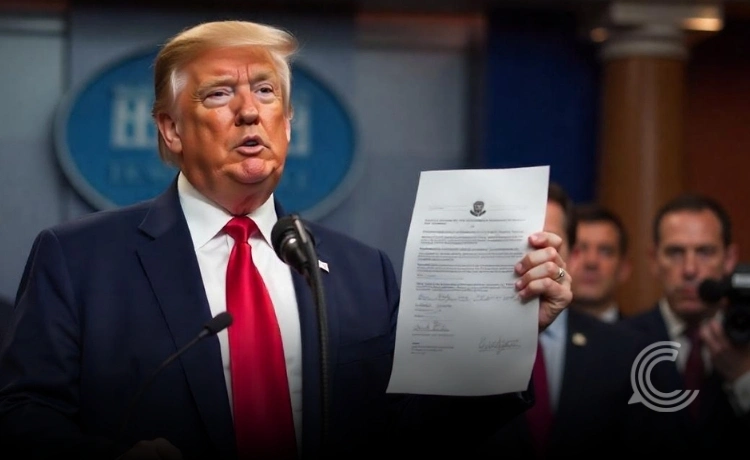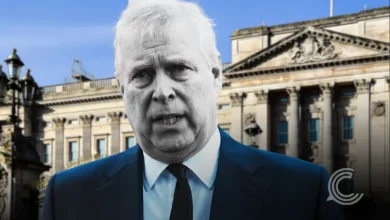US Appeals Court Halts Trump Plan to Freeze $4B Food Aid

Key Highlights–
- A US appeals court ruled against the Trump administration’s bid to withhold $4 billion in food aid during the government shutdown.
- The decision reignites debate over presidential spending powers and the limits of executive control.
- Food security for 42 million Americans remains uncertain as the case moves toward the Supreme Court.
A US appeals court has blocked the Trump administration’s attempt to withhold $4 billion in food aid, ruling that the executive branch cannot override funding mandates set by Congress. The decision reopens a larger debate over presidential power, fiscal accountability, and the government’s responsibility toward America’s most vulnerable citizens.
Court Upholds Order to Fund SNAP Benefits
Late Sunday, the Boston-based 1st US Circuit Court of Appeals upheld a Rhode Island judge’s order requiring the US Department of Agriculture (USDA) to release $4 billion in funds to ensure uninterrupted Supplemental Nutrition Assistance Program (SNAP) benefits during the government shutdown.
The ruling affects 42 million low-income Americans who rely on SNAP, commonly known as food stamps. The court stated that failing to distribute the funds would cause “widespread harm,” leaving millions without food as winter approaches.
US Circuit Judge Julie Rikelman, writing for the three-judge panel, emphasized that the judiciary’s duty was to prevent a humanitarian crisis rather than interpret fiscal discretion loosely. “We do not take lightly the government’s concern that money used to fund November SNAP payments will be unavailable for other programs,” she noted, “but denying aid would create far greater harm,” as reported by Reuters.
Legal Battle Over Executive Spending Power
The Trump administration had appealed a lower court’s order that directed the USDA to tap a $23.35 billion fund meant for child nutrition programs to cover the SNAP shortfall. It argued that the executive branch could not be compelled to reallocate funds beyond contingency reserves without congressional approval.
However, the appeals court rejected that argument, saying the presidential power of appropriation does not supersede congressional authority over spending. The decision, legal analysts say, serves as a precedent limiting how presidents can redirect or withhold appropriated funds during fiscal emergencies.
“This ruling reinforces the principle that the executive cannot play politics with appropriated funds,” said a Washington-based constitutional law expert quoted by Reuters. “It’s a reminder that the power of the purse ultimately rests with Congress.”
Supreme Court Intervention Adds Uncertainty
Despite the appeals court’s order, the situation remains fluid. The US Supreme Court Justice Ketanji Brown Jackson temporarily paused the lower court’s directive for 48 hours, leaving the status of the food aid program uncertain.
The USDA, meanwhile, instructed states to halt any steps taken to issue full SNAP benefits until further notice, warning of potential penalties if funds were disbursed prematurely. The standoff showcases how political gridlock and administrative disputes can affect ordinary Americans, particularly those who rely most heavily on government assistance.
Food Security at Risk Amid Prolonged Shutdown
SNAP, which costs roughly $8.5 to $9 billion per month, is the federal government’s largest anti-hunger program. During the shutdown, the Trump administration had planned to suspend benefits altogether in November, citing a lack of funding.
For millions of households earning less than 130% of the federal poverty line, this would have meant no access to essential food support. “A lapse in SNAP benefits isn’t a policy debate, it’s a direct threat to food security,” said an anti-hunger advocate in Washington.
Broader Implications: Power and Policy
The case showcases a deeper constitutional tension: how much fiscal discretion should a president have during a government shutdown? By siding against the administration, the appeals court reaffirmed the judiciary’s role as a check on executive overreach, a precedent likely to influence future budget disputes.
As the Supreme Court prepares to take up the case, the ruling could shape how future presidents handle appropriations, contingency funding, and crisis governance, meanwhile, while millions of Americans await clarity on their next meal. For additional regional updates related to federal assistance and local governance, explore our latest reports from Jackson, Mississippi.



